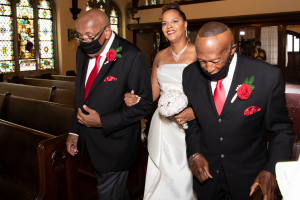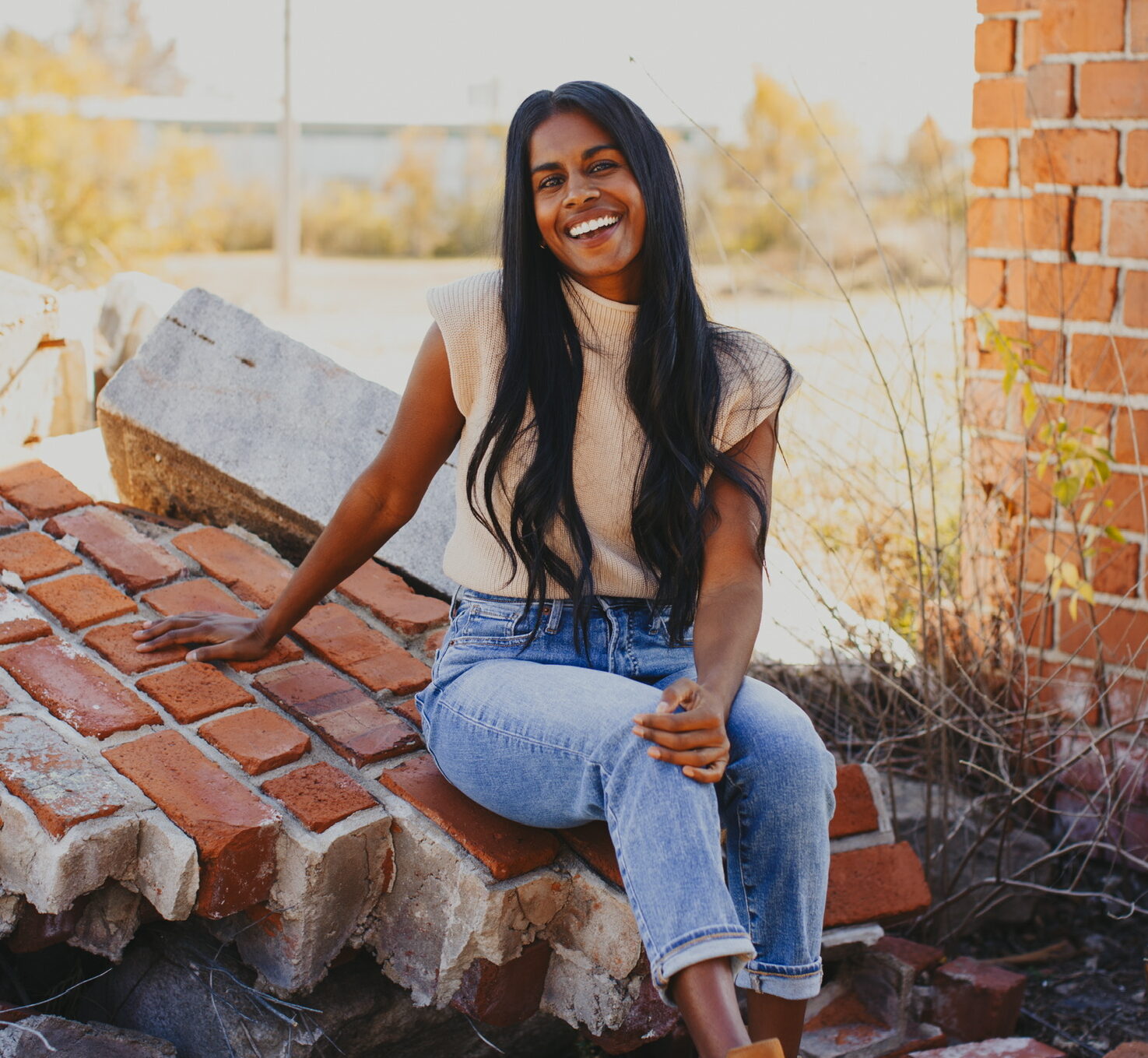Finding Joi: Lessons From Search and Reunion
After the Open Birth Certificates Act of NJ came into effect in 2017, I attended an event that led me to a newfound boldness about search and reunion in adoption. At this event I had my first experience talking with adult adoptees, birth parents, and adoptive parents. As I listened to the guest speaker, Dr. Stacey Patton, share her story, and a lightbulb went off in my head. She so eloquently articulated everything I ever felt. At that moment, I knew that I was not crazy, I was not weird, I was not wrong for saying I was different, and I was not out of my mind, because I thought people would forget me. I gained a new perspective on life and learned these are normal issues for many adoptees! And I believe that those issues directly impact adoption search and reunion situations.
As a mom of three no one ever questions if I love my children. They playfully debate about who is the “favorite”, but I never hear anyone question my love as their mother. I would like people to apply that thinking to adoption reunions. Just as a parent can love more than one child, adoptees can love two sets of parents. A reunion for an adoptee is about adding to the family not subtracting from it. Yet, adoptees are often told or expected to choose sides.
When an adoptee expresses interest in searching for his or her birth parents they often hear “You should be grateful you were adopted,” or “You have great parents. Why would you do that to them?” The foundation of those statements is that the adoptee has no right to find their identity or discover their roots, because it will hurt and possibly embarrass the family. However, the same school of thought is never applied when it comes to a child of a deceased or absent parent. In those cases, the family supports the child getting to know their relatives. That same understanding and grace should be extended to the adoptee's journey.
I recently held a virtual book club event for my memoir, “Finding Joi: A True Story of Faith, Family, and Love.” My sorority sisters from another state participated and explained in great detail how my book helped them understand their adopted friends and relatives’ struggles, how my story provided them with insight on what adoptees are thinking, and how important they thought my story would be to an adoptive parent. Wanting other to benefit in the same way, they had invited two other sorority sisters, who happen to be new adoptive parents, to join the virtual event and learn more about the book. But they realized these parents had never joined and said, “We just told them the book was about an adoptee finding her birth parents.” I chuckled and responded, “If you lead with that statement they are not showing up.” They didn’t understand. “You just poured gasoline on an adoptive parents' ultimate fear. The fear of losing their child,” I explained. They had not shared with them the bigger context of the book, and without that, the subject matter alone could ignite an adopted mom’s ultimate fear of having a birth mom return to take back their child. I heard a gasp and then silence followed by “I feel so bad.” Their rationale for inviting the adoptive parents in the first place, reinforced why I believe Barnes & Noble placed my memoir in the parenting section, and heightened my awareness of the fears my story ignites. This reminded me to think carefully about how others promote my book.
I’ve known since the age of four that I was adopted. My adoption was not a secret but was not commonly discussed until new changes in adoption legislation were in the news. I wrote my book to share my lifelong unspoken desire to discover my identity in a world that tells me that my desire to know will hurt my adopted parents and destroy my family. So, when adoptive parents ask for insight on this journey, I respectfully, but firmly say, search and reunion is not about you. It is not about what you did or did not give the adoptee. It is not about you being a bad parent. If you can remove self from your child’s desire to know, you are giving them the freedom to discover who they are while showing respect to the parents who gave them life.
My parents (adoptive) gave me the greatest gift along my journey. My dad said “Joi, this is about you and what you need. We will follow your lead and do our best to support Y-O-U.” My mom gave me the ultimate freedom by saying “Stop worrying about everyone else’s feelings - write the book!” But, sadly, not all adoptees receive that kind of support. Many adoptees tend to be people pleasers, so they give up the search before causing too much damage. However, with my parents “blessing” I’ve had to force myself to forget about everyone else and enjoy my moment.
Any adoptee embarking on a search and reunion journey is risking loss. The adoptee may lose someone they love, who is unwilling to look at things from their eyes. The adoptee may also be rejected by someone on the side of their birth family. These things happen all the time unfortunately, making the adoptive parent’s your role in the process especially pivotal. If you are the stronghold in that adoptee’s life they need to know you support them and are not abandoning them on this journey. Do your research on adoption trauma, find a counselor, a support group, and be a shoulder to lean on. Your reaction to all that happens during this journey impacts how much the adoptee will be willing to share with you throughout the process.
Many adoptees struggle with guilt, loyalty, shame, and fears of abandonment. The emotional rollercoaster as an adult kept me in weekly counseling sessions discussing my overwhelming feelings of guilt. Every adoption story is different, and in all cases I’ve heard the good, the bad, and the ugly. Yet, each adoptee appreciated the journey. While there is no sure fire path to a successful reunion, the best book shared with me was Adoption Reunions by Michelle McColm. This book was written for adoptive parents, birth parents, and the adoptee as a guide before, during and after a reunion. I sent all my parents the book and assigned it to them for homework before my birthparents and I met for the first time.
 I spoke to my birth parents on January 29, 2017. I met my birth mother as she gave her testimony before her congregation in February, I met my birth father at my father’s house in mid-March. Late March everyone came together to see my father (adoptive) and I perform at a Rock & Soul Music Review. I met my Match in July of that same year. This past August I got married during the COVID season, all of my parents and my stepmom were present and participated in our wedding. My fathers walked me down the aisle. My father (adoptive) and birth mother sang a duet and my mother (adoptive) prayed over our reception. To some I have had a made for television reunion. To those who know this journey this is just the beginning. The reunion is a bonus, the joy and healing came as a result of counseling, finding my support group through the advocates from NJCARE, becoming a volunteer with adoptive and foster organizations, and sharing my story. Relationships take time and I’m running a marathon but I know finding joy is possible!
I spoke to my birth parents on January 29, 2017. I met my birth mother as she gave her testimony before her congregation in February, I met my birth father at my father’s house in mid-March. Late March everyone came together to see my father (adoptive) and I perform at a Rock & Soul Music Review. I met my Match in July of that same year. This past August I got married during the COVID season, all of my parents and my stepmom were present and participated in our wedding. My fathers walked me down the aisle. My father (adoptive) and birth mother sang a duet and my mother (adoptive) prayed over our reception. To some I have had a made for television reunion. To those who know this journey this is just the beginning. The reunion is a bonus, the joy and healing came as a result of counseling, finding my support group through the advocates from NJCARE, becoming a volunteer with adoptive and foster organizations, and sharing my story. Relationships take time and I’m running a marathon but I know finding joy is possible!



